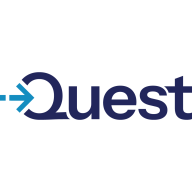

Informatica Intelligent Data Management Cloud and erwin Data Intelligence offer competitive solutions in the data management industry. IDMC holds an edge with comprehensive capabilities across various domains.
Features: IDMC provides a complete suite of services including master data management, data governance, data quality, and cloud application integration. Its seamless interaction with other data tools is an asset. Erwin Data Intelligence excels in metadata management, data lineage, and impact analysis, catering well to enterprises with existing data catalog investments. Its customization options enhance the understanding of metadata through tailored business glossaries.
Room for Improvement: IDMC's interface requires more refinement for user-friendliness and improved legacy system integration. Users have noted frequent downtime and complex error reports. Erwin Data Intelligence could enhance its automation and AI integration and improve user interface intuitiveness. The integration process is cumbersome for extensive datasets, and enhanced data quality features are desired.
Ease of Deployment and Customer Service: IDMC supports diverse deployment models from on-premises to cloud, though technical support can be inconsistent. Erwin offers commendable customer service with deployment in various environments, although challenges arise during complex integration tasks.
Pricing and ROI: IDMC's premium pricing suits large enterprises and varies with data volume and user numbers, offering notable returns when fully used. Erwin offers flexibility with competitive pricing aimed at organizations focused on data lineage and metadata management, delivering a favorable ROI.
Compared to competitor products like Collibra, erwin Data Intelligence is more cost-effective, providing a data catalog and data lineage views without the high costs associated with governance software.
Leadership prefers to utilize third-party tools, such as Snowflake, which has both storage and ELT features.
The stability and performance remain issues.
Compared to Collibra Catalog, where the value is noticeable within six months.
Quest technical support is very good, as they provide not only a technical help desk but also a data automation team that creates and customizes smart connectors, offering a wealth of skilled support.
Due to the tool's maturity limitations, solutions are not always simple and often require workarounds.
Even after going out of service support, they still reached back to me whenever I raised tickets.
We expect more responsive assistance because they have the expertise since Informatica is their tool, but I don't see enough expertise on the Informatica support side.
Regarding scalability, I would rate erwin Data Intelligence as an eight or nine for its ability to expand.
I have used the product over multiple systems and was able to write reports for large data sets without any performance issues.
As a SaaS platform, IDMC is quite scalable and provides complete flexibility.
There are many options available, and the licensing model is quite good, supporting our needs effectively.
From my perspective, I would rate the stability of erwin Data Intelligence as an eight or nine out of ten.
Stability is crucial because IDMC holds business-critical data, and it needs to be available all the time for business users.
There are substantial stability issues with Informatica Cloud Data Quality on the cloud.
I find the stability to be good, with occasional restarts required every two to three months due to glitches.
The dashboard in erwin Data Intelligence is customizable, and you can easily create different views.
The tool needs to mature in terms of category-specific attributes or dynamic attributes.
The current solution requires code-writing and tweaking, while other solutions offer material-level matches.
If the development interface could be optimized to have fewer modules, it would be greatly beneficial.
It ranges from a quarter million to a couple of million a year.
Informatica Intelligent Cloud Services is affordable for my specific use cases, with the pricing being rated three or four on a scale where one is very cheap.
Regarding pricing, compared to other tools I have worked with, Informatica offers competitive pricing, which I find not high in terms of starting strategy.
This feature is probably the most valuable because it allows for automated reverse engineering of lineage.
The platform's ability to pull in data from other platforms without the need for an additional integration tool enhances its appeal.
The connectors serve as the main functionality, making data integration processes more efficient by saving time and effort.
We could run data quality rules as part of Service Bus, which ensured the integrity of customer information before it was entered into our database.
| Product | Market Share (%) |
|---|---|
| Informatica Intelligent Data Management Cloud (IDMC) | 6.1% |
| erwin Data Intelligence | 1.9% |
| Other | 92.0% |


| Company Size | Count |
|---|---|
| Small Business | 2 |
| Midsize Enterprise | 4 |
| Large Enterprise | 14 |
| Company Size | Count |
|---|---|
| Small Business | 51 |
| Midsize Enterprise | 27 |
| Large Enterprise | 153 |
Erwin Data Intelligence drives automation, supports data catalog and literacy, and offers Smart Data Connectors for efficient metadata handling. Its customization flexibility and integration facilitate enhanced data governance, visualization, analysis, and compliance.
Erwin Data Intelligence offers automation scripts that accelerate development, integrated data cataloging, data profiling, and lineage analysis to streamline information management. Users appreciate its capability in metadata harvesting, code engineering, and infrastructure integration. The tool provides flexibility to enhance governance and data visualization. While it performs well, users have noted challenges with API robustness and interface complexity, and there are opportunities to improve workflow integration, AI features, and large dataset handling. Companies rely on it for metadata management, automation of metadata mappings, and data governance to support compliance and literacy.
What are the main features of Erwin Data Intelligence?In industries such as finance, healthcare, and retail, organizations implement Erwin Data Intelligence for efficient metadata management and governance. It assists in automating lineage and mapping, supporting ETL procedures while enhancing compliance and data literacy efforts. Its flexibility and integration support create valuable data insights and governance improvements.
Informatica Intelligent Data Management Cloud (IDMC) offers seamless integration of master data management, data quality, and data integration with a cloud-native architecture supporting multiple data management styles, optimizing data governance through metadata management.
IDMC enhances data synchronization and mapping tasks, utilizing a broad range of connectors to interact efficiently with data sources. Its precise address validation via AddressDoctor and intuitive navigation bolster user empowerment, delivering agility, scalability, and security in data governance. Despite its strengths, areas like ease of use, SAP integration, and reporting could benefit from enhancements. Connectivity issues and workflow complexities are noted, needing improvements in performance, support, and licensing cost. Users demand expanded ETL capabilities, real-time processing, and broader data source support to address growing data needs.
What are the key features of IDMC?In industries such as banking, healthcare, and telecom, IDMC is implemented for data integration, cloud migration, and enhancing data quality. Its capabilities are crucial for metadata management, lineage tracking, and real-time processing, ensuring high data quality and streamlined operations.
We monitor all Data Governance reviews to prevent fraudulent reviews and keep review quality high. We do not post reviews by company employees or direct competitors. We validate each review for authenticity via cross-reference with LinkedIn, and personal follow-up with the reviewer when necessary.